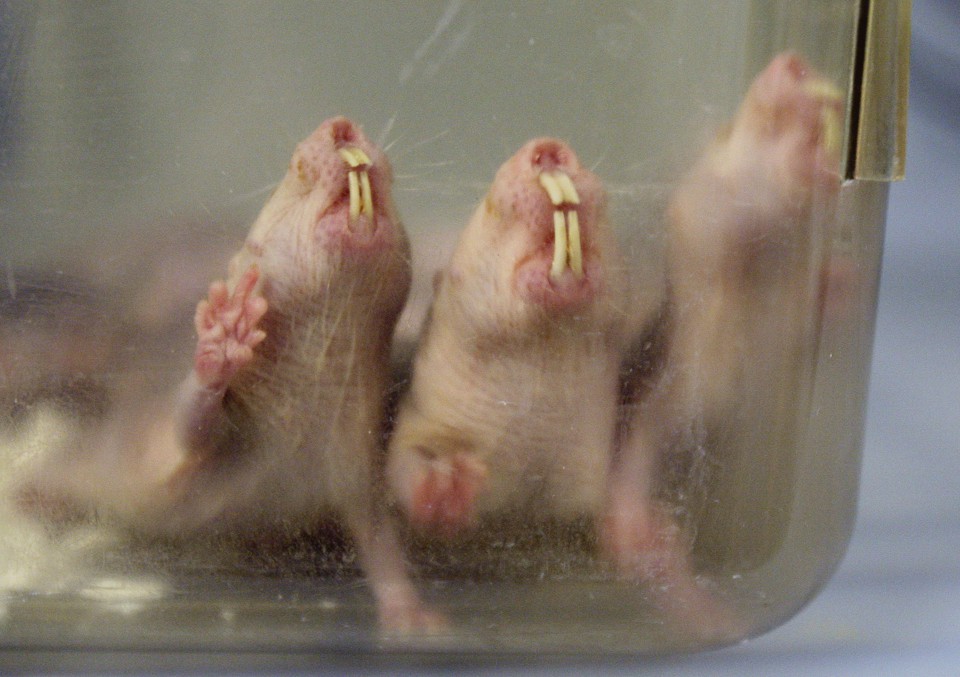The Ed's Up #183

How The March For Science Finally Found Its Voice
"They marched for science, and at first, they did so quietly. On Saturday, as thousands of people started streaming eastward from the Washington Monument, in a river of ponchos and umbrellas, the usual raucous chats that accompany such protests were rarely heard and even more rarely continued. “Knowledge is power; it’s our final hour,” said six enthusiastic people—to little response. “What do we want? Science! When do we want it? After peer review!” shouted another pocket of marchers—for about five rounds." By the time the front of the march approached Capitol Hill, the sign-carriers had begun to live up to their message. Chants picked up a little. Waves of cheers traveled up and down the marching column. It was as if the March for Science had recapitulated the journey that science itself has taken in the last six months—a crowd of people approaching the seat of political power with awkwardness and hesitancy, becoming progressively louder with each unfamiliar footfall." (Image: Aaron Bernstein) 
Blood From Human Umbilical Cords Can Rejuvenate Old Mouse Brains
"His team at Stanford University School of Medicine has found that plasma from human umbilical cords can rejuvenate the brains of old mice—specifically in an area called the hippocampus that’s vital for learning and memory. Using actual cord plasma “is not something you’d ever want to develop as a treatment,” he says. “It’s very cumbersome and difficult to collect.” But he hopes that by identifying specific beneficial molecules in the fluid, he can develop treatments for conditions like Alzheimer’s. Already, his team has identified a possible candidate—a protein called TIMP2 that seems to underlie many of the improvements in their experiments." (Image: Fabrizio Bensch) 
The World’s Strangest Mammal Can Survive 18 Minutes Without Oxygen
"Park deprived the animals of all their oxygen. Under these conditions, no mouse can survive for more than a minute. But naked mole-rats? Although they lose consciousness after 30 seconds, and their heart rates crash after two minutes, and they stop breathing entirely after seven minutes, they can survive for a ridiculous 18 minutes. “We think they go into a state of suspended animation,” Park says. If they inhale some precious oxygen at the 18-minute mark, they spring back to life, with no sign of brain damage." (Image: Eric Gay)

How a Scientist Who Studies Marches Sees the March for Science
"What’s interesting to me is that we typically don’t think of scientists as a political constituency. Seniors are a constituency, or gun owners, or demographic groups. The March for Science is trying to develop scientists as a political constituency with a collective voice. Can they do that? One of the ways they can do that is to show that they have the capacity to move votes, or shape the interests of the elected officials they’re trying to influence. They can bring consistent numbers of people out who will vote against anti-science candidates. Or they can run candidates and show that scientists can challenge members of Congress who are anti-science and beat them in elections—you lose if you’re consistently anti-science." (Image: Pablo Martinez Monslvals)

The Long-Ignored Reptile Rewriting the Prologue to the Dinosaur Story
"The creature known as Teleocrater has been described as one of the most notorious fossils in paleontology. Pieces of its limbs, spine, and tail were excavated from Tanzania in 1933, and the British paleontologist Alan Charig discussed it 23 years later in his Ph.D. thesis. But even though Charig talked about the animal, and wrote about it in his popular children’s books, he never formally published its name or description in an academic journal. Perhaps that was because the creature had such a strange mix of features that Charig couldn’t tell what it was. A dinosaur? An early crocodile? Some other kind of ancient reptile?" (Image: Mark Witton) More good reads on science and technology
- Climate change is altering the environment in ways that support mosquitoes, and increase the potential for viruses like Zika. Maryn McKenna reports.
- Sean Carroll writes about what it means to protest in the name of science, Jeremy Yoder says that the march reveals how terrible scientists are at politics, Andrew Jewett argues that the march is not political enough, Alice Bell offers four good reasons to march and one terrible one, and Maggie Koerth-Maker compares the marchers to angry farmers from the 1970s. “"It’s unlikely that scientists will release 50 goats on the Capitol steps.”
- “Call it an early Earth Day present, from a robot on the far side of the solar system.” Ross Andersen reflects on a stunning new pic of Earth taken from Saturn.
- “The case is a first for the scientific record books, an extreme example of what geographers call “river piracy”.” How climate change stole a Yukon river, by Ivan Semeniuk.
- “Somewhere at Google there is a database containing 25 million books and nobody is allowed to read them.” By James Somers
- A cluster of opioid addicts suddenly lost their memories. No one knows why. Azeen Ghorayshi reports.
- A really beautiful essay/memoir by Steven Phelps, on love, touch, and neurons.
- A lizard with scales that behave like a computer simulation
- “What Henrietta Lacks’s story taught me about trust and my role as a doctor”, by Jennifer Okwerekwu
- This may be the greatest hed and dek of all time. Congrats Robinson Meyer.
- A three-metre-long shipworm, found at last after years of looking.
- There’s a shocking lack of science behind lethal injections, says Adam Rogers.
- Women scientists take on more teaching and public-engagement tasks than men, which could put them at a disadvantage.
- A neuroscience-inspired court is piloting a new justice category for young adults.
- What thousands of revisions to the Wikipedia page on "Happiness" say about how we define abstract concepts
More good reads on politics and society
- The incredible Kathryn Schulz on literature’s obsession with polar exploration.
- A brutal but accurate summary of Britain’s upcoming political bloodbath, by Laurie Penny.
- This podcast from Shaun Lau and Anthony Williams is the best analysis of Get Out that I've seen.
- The EPA emerges as major target after Trump solicits policy advice from industry. Juliet Eilperin reports.
- How American Muslims are taking back their government in the wake of Trump’s election. By Emma Green.
- 15 percent of reluctant Trump voters said they would vote for the Democrat if the 2018 elections were held today.
- “Can the New York Times hire a black woman opinion columnist already?”
- How the Trump government is turning protestors into felons.
- Why Trump probably won’t ditch the Paris Climate Treaty
- Why Trumpism will outlast Bannon
- A UKIP Politician Is Selling A Health Product Called "Aerobic Oxygen" And It's Actually "Bleach"
- How often are the three female justices who sit on the Supreme Court interrupted by their male colleagues? A lot.
You can also follow me on Twitter or find my writing at The Atlantic. My New York Times-bestselling book, I Contain Multitudes, is out now. If someone has forwarded this email to you, you can sign up yourself.
And that's it. Thanks for reading.
- Ed